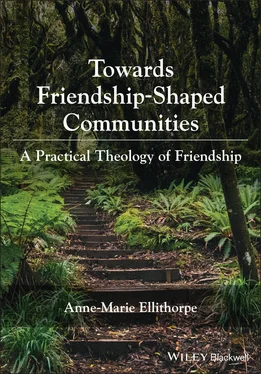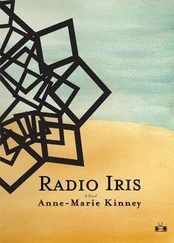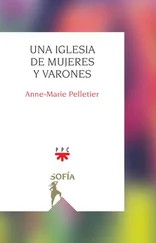Mutually critical correlation concerning relationality within Aotearoa will require a collaborative effort. Although clearly beyond the scope of this project, such a project is certainly possible. As Aotearoa approaches the bicentenary of the signing of Te Tiriti o Waitangi in 2040, there will be opportunities for tangata whenua (people of the land) and tangata Tiriti (people of the Treaty) to engage in transparent re-visioning of Aotearoa’s future, including imagining decolonization. Such revisioning will need to acknowledge multiple ways of being Māori, including differing practices and perspectives between iwi, hapū, and whānau (tribes, clans, and extended families), as well as differences between more traditional rural upbringings centered around a marae (meeting house), “pan-tribal urban” realities, and “international diaspora” perspectives developed through being Māori elsewhere. 67 More specifically, as part of such a process, the Anglican Church of Aotearoa, New Zealand and Polynesia may seek to contribute to a national vision and set of core values. In such a context, Tikanga Māori (the Māori Anglican Church) could both draw on a mātauranga Māori (Māōri knowledge) research paradigm and contribute to a mutually critical correlation approach, engaging in both affirmation and critique of their own ways of knowing and relational practices.
The correlation within this project is more nuanced than may be suggested by the conversation above. I identify and explore practices of authentic friendship with writers who have contributed to our understandings of this relationship, including Indigenous writers. An analogy for the correlation that takes place within this research is that of the reciprocity, give-and-take, and frankness of speech that characterizes communication among a community of friends and potential friends. Questions arising from various disciplines and sub-disciplines contribute to this conversation. Likewise, answers to questions raised emerge from various conversation partners.
Practical theology has tended to consider interdisciplinarity primarily in terms of conversation with non-theological disciplines. However, this methodology allows for both congruence and conflict between theological sub-disciplines as well as between theological and non-theological perspectives. In recent years, greater consideration has been given to the need for practical theologians to include dialogue between theological sub-disciplines, and to tackle the complexity of conversation between theological fields as they seek to make constructive normative proposals. 68 Theologian Richard Osmer advocates an understanding of interdisciplinarity that includes practical theology’s dialogue with “biblical studies, philosophical ethics, Christian ethics, church history, and systematic theology.” 69 Tracy encourages an “aesthetic-ethical correlation” that facilitates the further development of mystical-prophetic practical theologies. 70 This broader understanding of interdisciplinarity is evident throughout the various stages of theological reflection in this research. Sometimes conversation takes place between theological and philosophical sources; at other times it takes place between theological sub-disciplines, between various Christian traditions, or between Indigenous and non-Indigenous theologians.
Looking Backward and Forward
This introduction has identified the importance of friendship, considered definitions of friendship, and explored the terminology of practical theology. I have highlighted the potential for a practical theology of friendship to inform the shared social and theological imaginations of Christian communities of faith and the practices of friendship encouraged and nurtured within and by these communities. I cannot emphasize enough the importance of critical dialogue between diverse sources to this endeavor. The structure of the remainder of the book is based on the practical theological approach to correlation advocated by Don Browning. In A Fundamental Practical Theology Browning identifies descriptive theology, historical theology, systematic theology, and strategic practical theology as the four sub-movements of theology. 71 The interdisciplinary theoretical research presented in this book is based primarily on these sub-movements, as outlined below.
Part I: The Current Reality
Descriptive theology considers underlying norms and metaphors and seeks to capture and clarify practical questions. This phase is not simply the realm of the social sciences. Rather, questions emerging from the descriptive task are drawn from a variety of disciplines, including theology. While various disciplines help develop a thick description of an issue, each carries its own implicit and explicit norms and must be incorporated critically. 72 Browning suggests that questions such as the following guide this movement of theological reflection: “What, within a particular area of practice, are we actually doing? What reasons, ideals, and symbols do we use to interpret what we are doing? What do we consider to be the sources of authority and legitimation for what we do?” 73 Reflection on these questions encourages us to in turn consider what we really should be doing, reflect on the accuracy and legitimacy of our sources, and consider why dominant understandings prevail.
Thus, I seek to name the way things are with two descriptive chapters. Many of the conversation partners within this stage will be re-engaged with in subsequent stages of this research. Chapter 1considers ways in which friendship is defined, understood, and lived out, drawing on writings from the twentieth and early twenty-first centuries, and identifies key questions concerning the nature and status of friendship. Chapter 2considers various forms of relationality and friendship within Aotearoa New Zealand, paying particular attention to Māori expressions of relatedness, power dynamics in Aotearoa, and the impact of both on the possibility of friendships between Māori and settlers. This chapter also examines the contemporary coexistence of varying friendship worlds and considers various forms of relationality and friendship within, as well as beyond, one colonized country. Key to this consideration are holistic multidimensional Indigenous understandings of relationality, the signing and subsequent dishonoring of a treaty during the nineteenth century, resistance to colonization and the loss of land, and various forms of friendship throughout. This includes a certain amount of storytelling.
Why prioritize identifying the relational perspectives of an Indigenous minority in a far-flung part of the globe? I am convinced that a practical theology of friendship must include Indigenous perspectives and grapple with issues of power and colonization. Indigenous traditions are wisdom traditions. Indigenous peoples recognize the cosmic dimensions of relationality and are committed to right-relatedness and harmony. Westerners have much to learn about relationality and right-relatedness from a breadth of Indigenous perspectives, given the value that Indigenous peoples place on relationships.
Why focus most specifically on Māori perspectives? I have been privileged to learn from the wisdom of Māori leaders, authors, and friends, and am convinced that Māori theology and practice has much to offer as a conversation partner within practical theology. I lament the distorted social imagination that led to the dishonoring of the 1840 Te Tiriti o Waitangi between Māori and the British Crown and the subsequent oppression of te tangata whenua (the people of the land). I am grateful for the gifts of wisdom, hospitality, friendship, and mentoring I have received from Māori, and for the encouragement that this work is relevant to church and nation(s).
Читать дальше












